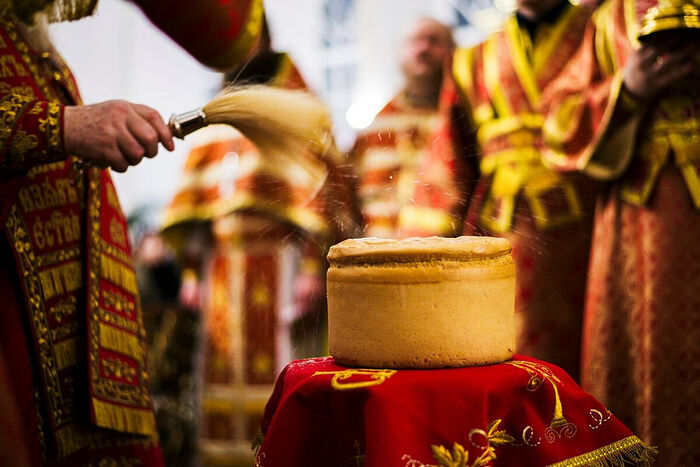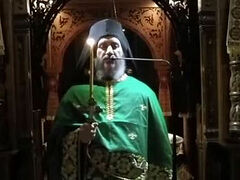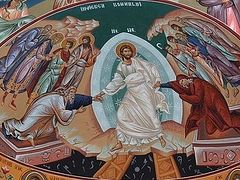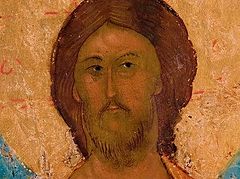Today, on Bright Saturday, as the Church typikon establishes, artos—special bread blessed on Pascha as a sign of the invisible presence of the Resurrected Savior with us—is cut into pieces and distributed among the faithful. However, Pascha does not end with this, and for another forty days we will greet each other with the victorious words: “Christ is Risen!” “In Truth He is Risen!”
The day of Pascha, the day of the Resurrection of Christ, is the “Feast of Feasts and the triumph of triumphs” because no other Christian feast has such great power and significance for our faith and our lives. We rejoice in the Resurrection of Christ because it is the triumph of our faith. The holy Apostle Paul says, And if Christ be not risen, then is our preaching vain, and your faith is also vain (1 Cor. 15:14). But Christ is truly Risen and by this He confirmed His Divine teaching of the Kingdom of God, the life of the age to come, and our general resurrection.
Through the Resurrection of Christ we were freed from the dark power of hell and given the opportunity of another, eternal and blessed life. The Word of God instructs: Now is Christ risen from the dead, and become the firstfruits of them that slept… For as in Adam all die, even so in Christ shall all be made alive (1 Cor. 15:20, 22).
It is through the Resurrection of Christ that human earthly life receives its meaning and significance. Death is no longer terrible because it is only a transition to another, new, higher world. And therefore, there is a crown for every virtue, retribution for every vice, a punishment for every crime, and the justification for faith and hope.
The words “Christ is Risen!” are as a hymn of the victory over death. Not only the living rejoice in the Resurrection of Christ, but also those who have already departed to the other world. So the day of joy—Radonitsa—is the day of special commemoration of the dead, which is marked on Tuesday after St. Thomas Sunday. On this day the Church on earth shares Paschal joy with all our forefathers, parents, brothers and sisters who have fallen asleep since the beginning of ages in the hope of the resurrection to eternal life. In all churches the Divine Liturgy is celebrated, when the bloodless sacrifice “on behalf of all and for all” is offered, followed by a memorial service.
Our prayer for the dead is the most important thing that we can do for those who have departed to God. The immortal soul of someone who passed away feels the need for our continuous prayers because it no longer has the opportunity to do good deeds, with which it might propitiate God.
For Russian people, Radonitsa is also a day of the commemoration of military commanders and soldiers who fell in battle. We pray for those who gave their lives for their faith and Motherland, who fulfilled the commandment of Christ: Greater love hath no man than this, that a man lay down his life for his friends (Jn. 15:13).
He is not a God of the dead, but of the living (Lk. 20:38), and this guarantee is the Resurrection of Christ the Savior. Thus, being in the joy of Holy Pascha, let us diligently, in the bosom of the true Church, prepare ourselves for the eternal incorruptible life that the Risen Lord has prepared for us—joyfully singing together with all the faithful the song of victory: “O Pascha of incorruption, salvation of the world!” Amen.




